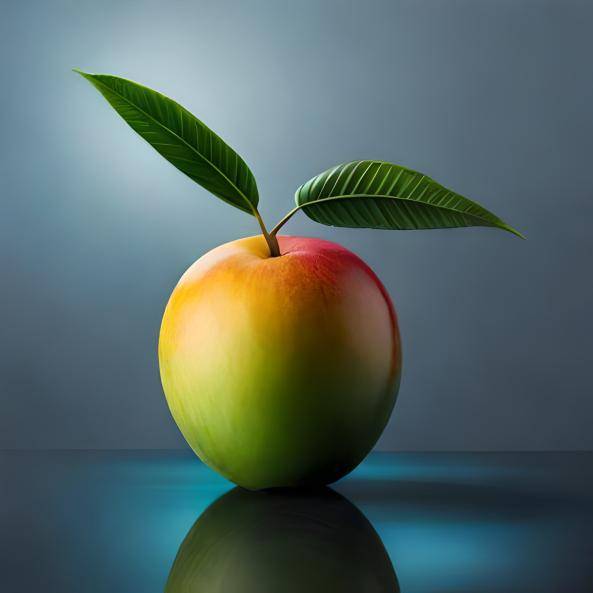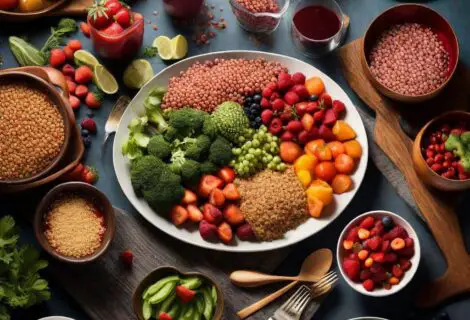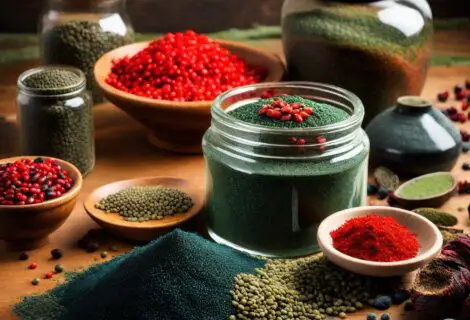The Importance of Fruits and Vegetables in Cancer Prevention
Have you ever pondered the real impact of those colorful fruits and veggies on your plate? I mean, we’ve all heard they’re packed with essential nutrients and vitamins. But did you know their magic extends way beyond that? Indeed, they are warriors in the fight against cancer. Let’s dig into this fascinating topic.
Introduction
Before we dig into that, let’s jump into a little context. Cancer has been a global health concern for decades, and its prevention is a topic that has caught the attention of scientists around the world. Amidst this concern, our humble fruits and vegetables have emerged as potential allies. Intriguing, isn’t it? Let’s dig deeper.
The Oxford University Study
First, let’s discuss a groundbreaking study that got everyone talking. Published in the journal “Cancer Causes & Control,” this study was conducted by diligent researchers from the prestigious University of Oxford. They had a mammoth task at hand: sifting through data from over 400,000 individuals.
Study Findings
Guess what they found? Those who ate the most fruits and veggies had a 13% lower risk of developing cancer compared to those who consumed the least. That’s right, a whopping 13%! Just imagine the power these natural foods can have on our health.
The Role of Antioxidants and Nutrients
You might be wondering how fruits and vegetables manage this feat. Well, the researchers credit this to the antioxidants and other nutrients found in these foods. These superheroes protect our cells from damage that could potentially lead to cancer. Additionally, they may help regulate hormones and inflammation, both known risk factors for cancer.
Unravelling the Correlation: Cardiorespiratory Fitness and Cancer Mortality in Men
The Bigger Picture: Diet and Cancer Risk
This study isn’t a standalone piece of evidence. It joins a growing body of research that links a healthy diet with cancer prevention. Other studies have found that eating fruits and vegetables can reduce the risk of certain types of cancer, such as lung, stomach, and colorectal cancer. You may like this…The China Study: Revolutionizing Our Understanding of Nutrition and Health.
Specific Types of Cancer Prevented by Fruits and Vegetables
Now, which types of cancer are we talking about here? Lung, stomach, and colorectal cancer are just a few that can be prevented with a diet rich in fruits and veggies. Each fruit or vegetable contains a unique combination of nutrients and antioxidants that may specifically target and protect against different types of cancer. This is interesting…Risk of Prostate Cancer: 5 Things You Can Do That Reduce Your Risk.
The American Cancer Society’s Dietary Recommendations
So, how many fruits and vegetables should we eat? The American Cancer Society advises adults to consume at least 2.5 cups of vegetables and 2 cups of fruit per day. That’s right, at least 5 servings of these nutrient powerhouses every day!
Practical Tips for Incorporating Fruits and Vegetables into Your Diet
We’ve established that fruits and veggies are fantastic, but how can you add more of them into your daily meals? Well, fret not, we’ve got you covered with some practical and easy tips:
Making Fruits and Vegetables the Centerpiece of Your Meals
Instead of considering them mere side dishes, let’s promote fruits and vegetables to the stars of our meals. Try creating meals around a vegetable or fruit. Trust me, a stir-fry with a rainbow of veggies or a breakfast fruit salad can be equally delicious and satisfying.
Snacking on Fruits and Vegetables
Ever feel peck-ish between meals? We’ve all been there! Instead of reaching for those chips or cookies, why not grab a fruit or some veggie sticks? They’re not only healthier but also keep you full for longer, thanks to their high fiber content.
Making Fruits and Vegetables Appealing
Let’s be honest, some of us might find fruits and vegetables a bit… boring. But guess what? Adding different flavors and textures can make them more exciting. Try roasting or grilling vegetables for a smoky flavor, or sprinkle some cinnamon on your fruit for a warm, sweet twist.
Trying New Fruits and Vegetables
Have you explored the bounty of fruits and vegetables out there? There’s a whole world of tastes, textures, and colors waiting to be discovered! So, next time you’re in the produce aisle, why not pick up something new? Who knows, you might discover a new favorite!
A Comprehensive Cancer Prevention Plan
While eating a healthy diet rich in fruits and vegetables is a vital step towards cancer prevention, it’s only one piece of the puzzle. Regular exercise, maintaining a healthy weight, and avoiding smoking are also crucial.
Exercise, Weight Management, and Non-smoking
You’ve probably heard this a thousand times, but let’s repeat it for good measure: regular physical activity, maintaining a healthy weight, and avoiding smoking can significantly reduce your risk of developing cancer. This trio, combined with a diet rich in fruits and vegetables, forms a powerful defense against cancer.
Conclusion
In conclusion, fruits and vegetables are more than just a colorful addition to our meals. They are potential lifesavers, carrying with them the power to prevent cancer. By incorporating more of these nutrient-packed foods into our diets, we can actively contribute to our health and potentially reduce our risk of developing cancer. Remember, it’s not just about adding more fruits and vegetables; it’s also about embracing an overall healthy lifestyle.
Join the Conversation
Now that you’ve learned about the power of fruits and vegetables in cancer prevention, we’d love to hear from you. Do you have a favorite fruit or vegetable? Any unique and delicious ways you incorporate them into your meals? We’re all ears! Please leave a comment below and share your experiences.
We believe in the power of community and shared knowledge. So, if you found this article helpful, why not share it with your friends, family, or anyone else who might benefit? You never know, your share could spark a change in someone’s life.
If you have suggestions or ideas for future topics, we’re more than happy to hear them. We’re always striving to provide content that is both engaging and valuable to our readers.
To stay updated with our latest articles and get more health and wellness insights straight into your inbox, we invite you to subscribe to our newsletter.
Remember, your journey to a healthier lifestyle doesn’t have to be a lonely one. Let’s embark on this path together, sharing, learning, and growing. Thank you for being a part of our community!
Frequently Asked Questions
1. Does eating more fruits and vegetables guarantee I won’t get cancer?
While eating more fruits and vegetables can significantly reduce your risk, it doesn’t guarantee that you won’t get cancer. Other factors like genetics, lifestyle, and environmental factors also play a role.
2. Are frozen or canned fruits and vegetables as beneficial as fresh ones?
As long as they are canned or frozen without added sugars or high levels of sodium, they can be just as nutritious as fresh ones.
3. Which fruits and vegetables are the best for cancer prevention?
All fruits and vegetables contain beneficial nutrients and antioxidants, but some studies suggest that cruciferous vegetables like broccoli and leafy greens might have an extra edge in cancer prevention.
4. Do I need to take supplements if I eat plenty of fruits and vegetables?
A balanced diet rich in fruits and vegetables should provide all the necessary nutrients for most people. However, if you have specific nutritional needs, you should consult with a healthcare provider or a nutritionist.
5. What are some other lifestyle changes I can make to reduce my cancer risk?
In addition to increasing your fruit and vegetable intake, regular exercise, maintaining a healthy weight, avoiding smoking, and reducing alcohol consumption can also significantly reduce your cancer risk.








